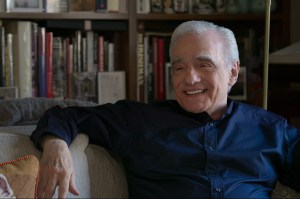Released thirty years ago this year, Barcelona is the movie with which Whit Stillman came of age.
The New York-born cinematic portraitist of the well-mannered and well-heeled launched his career in 1990 with Metropolitan, which charted a course deep into J.D. Salingerdom with its cast of demure debutantes and their callow escorts. For all its wit and winsomeness, the movie has a certain undeniable post-adolescent soppiness: a girl is driven to tears by a cruel remark by her brother; a young man clings to the toys of his youth; there is a paean to Babar and a lament for absentee fathers. The film’s much-loved Christmastime setting actively contributes to this tone of teenage melancholia.
By his sophomore effort, however, Stillman had advanced his characters in age, in attitude and in affect. In Barcelona, Stillman’s protagonists remain civilized, and they are as unacquainted with economic privation as ever, but they are a few years older. These characters no longer suggest Franny Glass and Lane Coutell as much as would-be Men in Grey Flannel Suits and their potential brides. It’s the first mature Stillman movie.
In Metropolitan, the heroes and heroines negotiate their private lives in their parents’ apartments long after dark, but in Barcelona, the lead character has a room of his own and then some: amid the death throes of the Cold War, Ted Boynton (played by Stillman regular Taylor Nichols) is the Barcelona-based sales agent for the Illinois High Speed Motor Corporation, or IHSMOCO, which, in the universe of the film, is run with a spirit as genteel as any white-shoe law firm’s. Ted has carved out a pleasing routine: days at the office, enlivened by comely coworkers and the wonders of the telex machine, and nights and weekends reading self-help literature on the order of Dale Carnegie and How I Raised Myself from Failure to Success in Selling. His spacious apartment is well appointed and contentedly empty until his cousin, naval officer Fred Boynton (Chris Eigeman, another Stillman stalwart), makes an uninvited appearance during a rainstorm. A naval assignment has brought him to Spain, and where would he stay but with family?
Here is one of the film’s first illustrations of the pleasures of adulthood: although he does not refuse Fred, Ted insists on certain parameters. “You know what Dr. Johnson said: ‘Guests, like fish, begin to stink on the third day,’” Ted tells Fred, who responds with a certain amount of pride that he will start to stink on the first day.
Yet the Odd Couple tension between Ted and Fred — up to and including the latter’s habit of silently borrowing sums of money from the former — belies each man’s essential seriousness. Both are old enough to have developed certain fixed ideas about the world and their place in it. Ted has persuaded himself that true romance is only possible with “plain or even rather homely girls,” while Fred has committed himself not only to serving his country in uniform but being a loud, obnoxious mouthpiece for its values and policies. These characters are quite far from Tom Townsend, who, in Metropolitan, bristled at conventional society before acknowledging its charm. For the most part, Ted and Fred are settled in their belief systems.
Indeed, Barcelona equates patriotism itself with maturity. Fred invokes Francis Scott Key when observing the revelry on the night of San Juan, and Ted makes the case for American hamburgers over their European knockoffs. For these chaps, dressing well is not a trad affectation but an indication of having reached adulthood. Ted wears his business suit because it reflects a company of which he is proud, and Fred wears his Navy uniform because it advertises a country of which he is proud (and because it perturbs the anti-American Spaniards). They accept they will be called fascists by the locals for their sins: “You comb your hair, you wear a coat and tie, you’re ‘facha,’” Ted says.
The cousins suffer their share of romantic indignities, but they seem plausible candidates for marriage: when Fred, sharing a bed with the alluring Marta (Mira Sorvino), reflects on having misunderstood the proper shaving protocols and worries that he might pass that bad information onto his hypothetical son, Marta wonders aloud whether he has an actual son — an amusing thought (has this upright officer fathered a child out of wedlock?), but the serious point is that Fred has reached the stage in life where having a son is on his mind.
Some may regard the film’s climactic anti-American terrorist attack as at variance with its romantic comedy framework, but Fred’s injury — he is rendered comatose for a period and loses sight in one eye forever — is essential to his own maturation. Could Fred so hilariously mock the infantile whining of Dustin Hoffman in The Graduate, as he does in a signature Stillman scene, had he not gained a certain wisdom through his wounds? By the same token, Ted’s decision to undertake a vigil at Fred’s hospital bed suggests an intensification of his piety, which, earlier in the film, seemed to be no deeper than reading the Old Testament to the accompaniment of Glenn Miller.
There are many things to love about Barcelona: the glistening dialogue, the droll performances, the splendid scenery. But I choose to see it as an exhortation to become a man. These cousins take their lives, their loves, their work, their country seriously, and we would do well to do the same.
This article was originally published in The Spectator’s December 2024 World edition.






















Leave a Reply